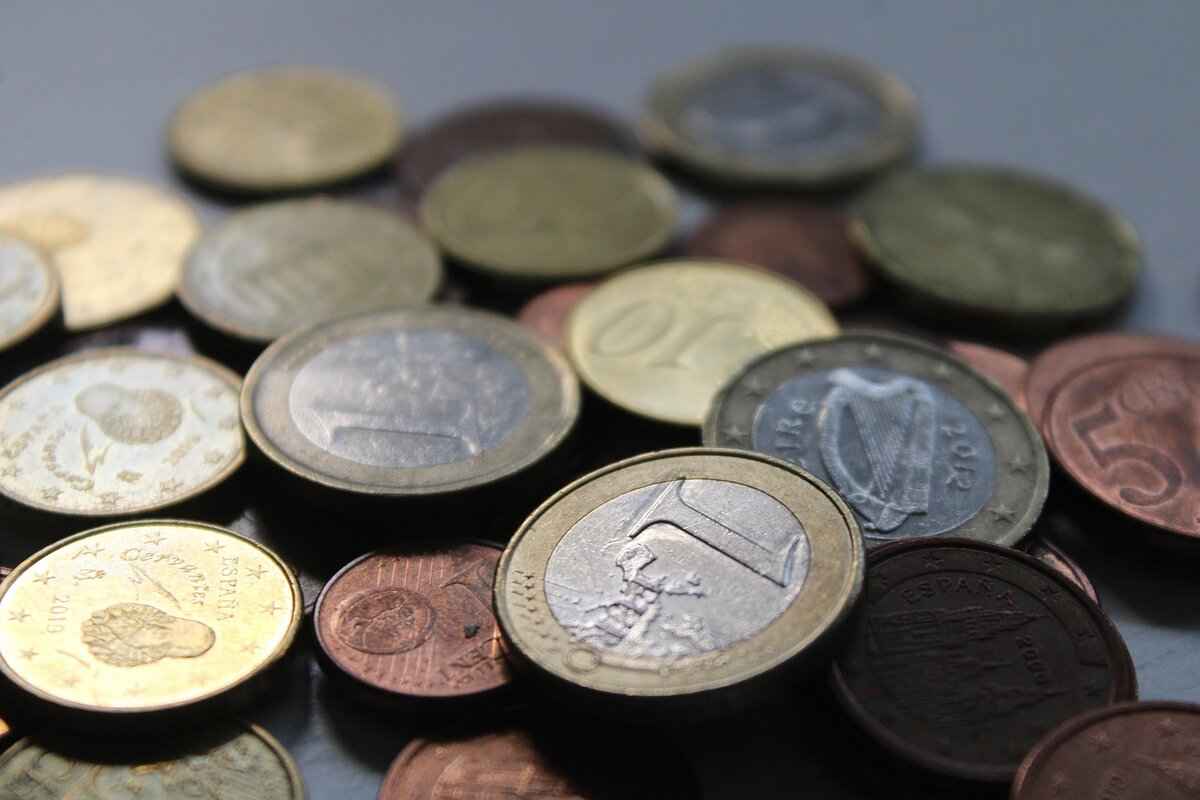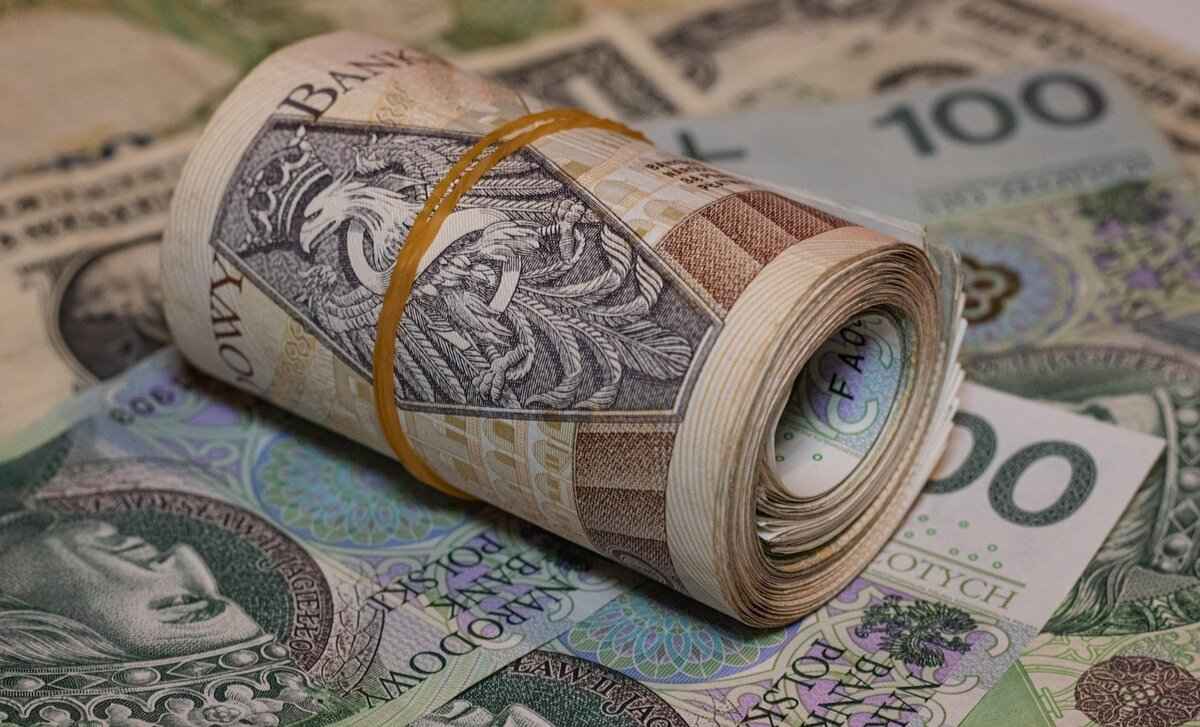This article delves into the legal rights and protections granted to foreign investors in the United States, examining various facets of investment, regulatory frameworks, and mechanisms for dispute resolution. Understanding these rights is essential for foreign entities considering investment opportunities in the U.S. market.
Understanding Foreign Investment in the U.S.
Foreign investment is a significant driver of the U.S. economy, fostering job creation and innovation. The influx of foreign capital not only enhances market competition but also brings new technologies and business practices. For potential investors, grasping the landscape of foreign investment is vital for making informed decisions.
Legal Framework Governing Foreign Investment
The U.S. has a comprehensive legal framework that governs foreign investments, which includes both federal and state laws. Key regulations that foreign investors must navigate include:
- Foreign Investment Risk Review Modernization Act (FIRRMA)
- Investment Company Act
- State-specific regulations
Committee on Foreign Investment in the United States (CFIUS)
CFIUS plays a critical role in reviewing foreign investments for national security risks. This governmental body evaluates transactions that may pose threats to U.S. security, and understanding its processes is crucial for foreign investors aiming to enter the U.S. market.
CFIUS Review Process
The review process by CFIUS can be intricate. It typically involves several steps:
1. Submission of a notice for review.2. Initial review period (30 days).3. In-depth investigation if necessary (up to 45 additional days).4. Final decision communicated to the parties involved.
Impact of CFIUS Decisions
CFIUS decisions can significantly influence foreign investments. Outcomes may include:
- Approval of the transaction
- Conditional approval with modifications
- Prohibition of the proposed transaction
Investment Protections under U.S. Law
Foreign investors enjoy numerous protections under U.S. law, including:
- Property rights that safeguard their investments
- Access to U.S. courts for legal recourse
These rights ensure that foreign entities can operate with a level of security and predictability in the U.S. market.
Taxation and Financial Regulations
Understanding tax implications and financial regulations is crucial for foreign investors. They must navigate both federal and state tax laws, which can be complex and varied. Key areas of focus include:
- Federal and State Tax Obligations: Foreign investors must comply with various tax requirements, including income tax, sales tax, and property tax.
- International Tax Treaties: These treaties can help mitigate double taxation, providing significant benefits for foreign entities operating in the U.S.
Dispute Resolution Mechanisms
In the event of disputes, foreign investors have access to various resolution mechanisms. Options include:
- Arbitration vs. Litigation: Investors must decide between these two methods of dispute resolution, each with its own advantages and disadvantages.
- Role of Mediation: Mediation serves as an effective alternative dispute resolution method, often leading to quicker and less costly resolutions.
Challenges Faced by Foreign Investors
Despite the protections in place, foreign investors may encounter challenges such as regulatory compliance, cultural differences, and market entry barriers. Understanding these obstacles and seeking expert advice can aid in navigating the complexities of investing in the U.S.

Understanding Foreign Investment in the U.S.
Foreign investment is a vital component of the U.S. economy, significantly impacting various sectors and contributing to overall economic growth. In recent years, foreign entities have increasingly recognized the potential of the U.S. market, leading to substantial capital inflows that foster job creation, enhance innovation, and stimulate competition.
The landscape of foreign investment can be complex, influenced by a myriad of factors including regulatory frameworks, market conditions, and geopolitical considerations. For potential investors, understanding this landscape is not just beneficial but essential.
To provide a clearer picture, here are some key aspects of foreign investment in the U.S.:
- Economic Contributions: Foreign investments have been shown to create millions of jobs in the U.S., spanning various industries such as technology, manufacturing, and services. These investments often lead to increased productivity and innovation, as foreign companies bring new technologies and expertise.
- Market Access: The U.S. market offers foreign investors unparalleled access to a diverse consumer base, advanced infrastructure, and a stable economic environment. This access is particularly attractive for foreign firms looking to expand their operations.
- Regulatory Environment: Understanding the U.S. regulatory environment is crucial for foreign investors. The U.S. has a comprehensive legal framework that governs foreign investments, which includes federal and state laws designed to protect both investors and national interests.
Moreover, the Committee on Foreign Investment in the United States (CFIUS) plays a critical role in reviewing foreign investments for national security risks. This committee ensures that foreign entities do not pose a threat to the U.S. economy or security, making it essential for potential investors to understand the CFIUS review process.
Foreign investors are also afforded certain rights and protections under U.S. law. These include:
- Property Rights: Foreign investors have the right to own property in the U.S., which is protected under the law. This ensures that their investments are safeguarded against arbitrary actions.
- Access to Courts: Investors can seek legal recourse through U.S. courts, providing them with a means to resolve disputes effectively.
Taxation is another critical area for foreign investors to consider. They must navigate both federal and state tax obligations, which can vary significantly. Understanding the implications of these taxes, as well as the benefits of international tax treaties that mitigate double taxation, is vital for foreign entities looking to invest in the U.S.
In terms of dispute resolution, foreign investors have several mechanisms at their disposal. They can choose between arbitration and litigation, each having its own advantages and disadvantages. Mediation also serves as a valuable alternative, offering a more collaborative approach to resolving conflicts.
While foreign investment in the U.S. presents numerous opportunities, it is not without challenges. Investors may face regulatory hurdles, market entry barriers, and cultural differences that can complicate their operations. However, with thorough research and strategic planning, these challenges can often be mitigated.
In summary, understanding the intricacies of foreign investment in the U.S. is crucial for potential investors. By grasping the economic contributions, legal protections, and regulatory frameworks, foreign investors can better navigate the complexities of the U.S. market and position themselves for success.

Legal Framework Governing Foreign Investment
The legal framework governing foreign investment in the United States is multifaceted and is designed to protect both the interests of the nation and those of foreign investors. This framework encompasses a variety of federal and state laws, regulations, and guidelines that foreign investors must navigate to ensure compliance and protection of their investments.
Foreign investment is critical to the U.S. economy, driving innovation and creating jobs across various sectors. Understanding the legal landscape is essential for foreign investors looking to enter or expand within the U.S. market. Below, we outline the key components of this legal framework.
- Federal Regulations: At the federal level, the primary regulatory body overseeing foreign investments is the Committee on Foreign Investment in the United States (CFIUS). CFIUS reviews transactions that may pose a risk to national security. This review process is crucial for foreign investors, as it can lead to approvals, modifications, or even prohibitions of proposed transactions.
- State Regulations: In addition to federal regulations, each state has its own set of laws governing foreign investments. These laws can vary significantly, affecting everything from business registration to taxation. Investors must familiarize themselves with the specific requirements of the states in which they plan to operate.
- Investment Treaties: The U.S. has entered into numerous bilateral investment treaties (BITs) with various countries. These treaties provide additional protections for foreign investors, including guarantees against expropriation and assurances of fair and equitable treatment.
Foreign investors should also be aware of the Foreign Corrupt Practices Act (FCPA), which prohibits bribery of foreign officials and requires accurate record-keeping. Compliance with the FCPA is essential for maintaining a good standing in the U.S. market.
Furthermore, it is important for foreign investors to understand the implications of U.S. antitrust laws. These laws are designed to promote fair competition and prevent monopolistic practices. Foreign entities must ensure that their business practices comply with these laws to avoid legal repercussions.
Another critical aspect of the legal framework is the intellectual property (IP) rights protection. The U.S. offers robust IP laws that safeguard the innovations and creations of foreign investors. Understanding these protections is vital for businesses that rely on patents, trademarks, and copyrights.
Lastly, foreign investors must navigate various taxation issues, including both federal and state tax obligations. The U.S. tax system can be complex, and investors should seek expert advice to ensure compliance and optimize their tax liabilities.
In conclusion, navigating the legal framework governing foreign investment in the U.S. requires a comprehensive understanding of federal and state regulations, compliance with applicable laws, and awareness of the rights and protections available to foreign investors. By being informed and proactive, foreign investors can successfully enter and thrive in the U.S. market.
Committee on Foreign Investment in the United States (CFIUS)
The Committee on Foreign Investment in the United States, commonly known as CFIUS, plays a pivotal role in safeguarding national security by reviewing foreign investments in U.S. companies and assets. Established through the Exon-Florio Amendment to the Defense Production Act of 1950, CFIUS assesses whether foreign acquisitions pose any risks to national security. This article delves into the intricacies of CFIUS, its processes, and the implications for foreign investors looking to enter the U.S. market.
Understanding the Role of CFIUS
CFIUS is tasked with evaluating foreign investments that may affect national security. The committee comprises representatives from various U.S. government agencies, including the Departments of Defense, Treasury, and Homeland Security. Its primary objective is to identify and mitigate any potential risks associated with foreign ownership or control of U.S. businesses, especially those involved in critical technologies or infrastructure.
The CFIUS Review Process
The CFIUS review process can be intricate and involves several key steps:
- Filing a Notice: Foreign investors must submit a notice to CFIUS detailing the proposed transaction.
- Initial Review: CFIUS conducts a 30-day initial review to assess the transaction’s potential impact on national security.
- Extended Investigation: If concerns arise during the initial review, CFIUS may initiate a 45-day investigation for a more in-depth analysis.
- Decision Making: After the investigation, CFIUS can either clear the transaction, impose conditions, or recommend that the President block the transaction.
Foreign investors should be prepared for these timelines and processes, as they can significantly impact the overall investment strategy.
Impact of CFIUS Decisions
The decisions made by CFIUS can have profound implications for foreign investments. A positive outcome may lead to approval, while a negative decision could result in the modification or outright prohibition of the investment. Understanding these potential outcomes is critical for foreign investors to navigate the complexities of U.S. regulations effectively.
Moreover, CFIUS has the authority to impose conditions on transactions to mitigate any identified risks. These conditions can range from requiring divestiture of certain assets to implementing specific compliance measures. Therefore, foreign investors must engage with CFIUS early in the process to address any potential concerns proactively.
Recent Trends and Developments
In recent years, the scope of CFIUS reviews has expanded, particularly concerning technology and data privacy. With the increasing focus on national security in the context of foreign investments, CFIUS has been more vigilant in scrutinizing transactions involving sensitive technologies, especially those related to telecommunications and artificial intelligence.
Additionally, the Foreign Investment Risk Review Modernization Act (FIRRMA), enacted in 2018, has broadened CFIUS’s authority to review non-controlling investments and real estate transactions near sensitive government facilities. This expansion reflects the evolving landscape of national security concerns and the need for a comprehensive review process.
Conclusion
For foreign investors, understanding the CFIUS review process is crucial for successful entry into the U.S. market. By engaging with CFIUS early and addressing potential national security concerns, investors can enhance their chances of obtaining approval for their transactions. As the regulatory landscape continues to evolve, staying informed about CFIUS’s processes and requirements will be essential for navigating the complexities of foreign investment in the United States.
CFIUS Review Process
The Committee on Foreign Investment in the United States (CFIUS) plays a vital role in reviewing foreign investments to ensure they do not pose risks to national security. The can be intricate and multifaceted, requiring investors to understand the steps involved, expected timelines, and what they can anticipate during their investment proposal reviews.
The review process typically begins when a foreign investor submits a notification to CFIUS, outlining the details of the proposed transaction. This submission must include comprehensive information about the parties involved, the nature of the investment, and any relevant business operations. Once the notification is received, CFIUS initiates a 45-day review period. During this time, the committee assesses the potential national security implications of the investment.
- Initial Assessment: CFIUS conducts an initial assessment of the transaction to identify any potential risks associated with foreign control over a U.S. business.
- In-Depth Investigation: If concerns arise during the initial review, CFIUS may extend the process into a 45-day investigation phase, where more detailed analysis and consultations with other government agencies occur.
- Decision Making: At the conclusion of the review or investigation, CFIUS can either approve the transaction, recommend mitigation measures, or prohibit the investment if deemed a threat to national security.
Investors should be aware that timelines can vary significantly based on the complexity of the transaction and the nature of the concerns raised. While the standard review period is 45 days, additional time may be required for investigations, and in some cases, the process can extend beyond 90 days.
Throughout the review, CFIUS may request additional information or clarifications from the investors, which can further impact timelines. Therefore, it is crucial for investors to prepare thoroughly and respond promptly to any inquiries.
Moreover, understanding the potential outcomes of the CFIUS review is essential. Investors can expect one of three primary results:
- Approval: The transaction is cleared without any conditions.
- Mitigation: The investment is approved with specific conditions designed to mitigate any identified risks.
- Prohibition: The transaction is blocked if it poses significant national security risks.
In conclusion, navigating the CFIUS review process requires careful preparation and an understanding of the regulatory landscape. Foreign investors are encouraged to engage legal experts familiar with CFIUS to ensure compliance and facilitate a smoother review process. By being proactive and informed, investors can enhance their chances of successfully completing their investment proposals in the U.S. market.
Impact of CFIUS Decisions
Foreign investments in the United States are subject to a rigorous review process conducted by the Committee on Foreign Investment in the United States (CFIUS). Understanding the is crucial for foreign investors aiming to navigate the complexities of U.S. regulatory frameworks.
CFIUS is tasked with evaluating foreign investments to assess potential risks to national security. Its decisions can have profound implications for foreign investors, leading to a range of outcomes that can significantly alter the course of proposed transactions.
- Approval of Transactions: CFIUS may approve a foreign investment if it determines that there are no national security concerns. This outcome allows investors to proceed with their plans, often resulting in successful integration into the U.S. market.
- Modification of Terms: In some cases, CFIUS may approve a transaction but with specific conditions or modifications aimed at mitigating identified risks. These modifications can include changes in management structures, operational controls, or data security measures.
- Prohibition of Transactions: If CFIUS determines that a proposed investment poses an unacceptable risk to national security, it has the authority to prohibit the transaction altogether. This outcome can be particularly devastating for investors who have already committed significant resources.
The CFIUS review process is not only about national security but also reflects broader economic considerations. For instance, foreign investors must be aware that CFIUS decisions can impact their reputation and relationships within the U.S. business community. An unfavorable decision may lead to increased scrutiny from other regulatory bodies or even affect future investment opportunities.
Moreover, CFIUS decisions can vary based on the nature of the investment and the country of origin. For example, investments from countries with strained diplomatic relations with the U.S. may face heightened scrutiny compared to those from allied nations. This geopolitical context adds another layer of complexity for foreign investors to consider.
Investors should also be proactive in engaging with CFIUS early in the investment process. By seeking informal consultations, they can gain valuable insights into potential concerns and address them before formal submission. This approach not only enhances the likelihood of a favorable outcome but also demonstrates a commitment to compliance and transparency.
In conclusion, the impact of CFIUS decisions on foreign investments in the U.S. cannot be overstated. By understanding the potential outcomes and engaging with the review process effectively, foreign investors can better navigate the complexities of U.S. regulations and enhance their chances of success in the American market.
Investment Protections under U.S. Law
Foreign investors in the United States benefit from a robust legal framework designed to protect their investments. This framework encompasses various rights and privileges that not only promote a favorable investment climate but also ensure that foreign entities are treated fairly under U.S. law. Understanding these protections is crucial for foreign investors aiming to navigate the complexities of the U.S. market.
Property Rights
One of the cornerstones of investment protection in the U.S. is the guarantee of property rights. Foreign investors have the right to own property, whether it be real estate, intellectual property, or business assets. This ownership is protected under both federal and state laws, which provide a legal basis for enforcing these rights. The U.S. Constitution, particularly the Fifth Amendment, ensures that no one can be deprived of their property without due process of law, further solidifying these protections.
Access to U.S. Courts
Another significant aspect of investment protection is the access to U.S. courts. Foreign investors have the right to seek legal recourse through the American judicial system. This access is vital for resolving disputes that may arise during business operations. U.S. courts are generally perceived as impartial and fair, which instills confidence in foreign investors. The ability to litigate in a well-established legal system helps protect their interests and provides a mechanism for enforcing contracts and resolving conflicts.
Investment Treaties
The United States has entered into numerous bilateral investment treaties (BITs) with various countries. These treaties provide additional layers of protection for foreign investors by establishing standards for treatment, compensation for expropriation, and mechanisms for dispute resolution. BITs typically ensure that foreign investors are treated no less favorably than domestic investors, further enhancing the security of their investments.
Regulatory Framework
The U.S. regulatory environment also plays a crucial role in protecting foreign investments. Agencies such as the Committee on Foreign Investment in the United States (CFIUS) review foreign investments for potential national security risks. While this may seem like a hurdle, it is part of a broader effort to maintain a secure investment climate. Understanding CFIUS processes is essential for foreign investors, as compliance can lead to smoother investment experiences.
Insurance and Guarantees
Foreign investors can also benefit from insurance and guarantees offered by various U.S. government programs, such as the Overseas Private Investment Corporation (OPIC). These programs provide political risk insurance and financing solutions that can help mitigate potential losses due to unforeseen circumstances. Such resources are invaluable for foreign entities looking to invest in sectors that may be perceived as high-risk.
Conclusion
In summary, foreign investors in the United States enjoy a comprehensive set of protections under U.S. law, including strong property rights, access to the judicial system, and the benefits of international treaties. The regulatory framework, while complex, is designed to ensure a secure investment environment. By understanding these protections, foreign investors can make informed decisions and effectively navigate the U.S. market, ultimately contributing to economic growth and innovation.

Taxation and Financial Regulations
Understanding the tax implications and financial regulations is vital for foreign investors looking to enter the U.S. market. This section delves into the essential tax obligations and compliance requirements that foreign investors must navigate to ensure their investments are both profitable and compliant with U.S. laws.
Foreign investors are subject to a complex array of federal and state tax laws. These laws can vary significantly depending on the nature of the investment, the type of entity involved, and the jurisdiction in which the investment is made. It is crucial for investors to familiarize themselves with these obligations to avoid penalties and ensure smooth operations.
- Federal Tax Obligations: Foreign investors are typically required to pay federal income tax on income earned within the U.S. This includes taxes on dividends, interest, and capital gains. The Internal Revenue Service (IRS) provides guidelines on how these taxes should be reported and paid.
- State Tax Obligations: In addition to federal taxes, foreign investors must also consider state taxes. Each state has its own tax regulations, which may include income taxes, franchise taxes, and property taxes. Understanding the specific requirements of the state where the investment is located is essential.
Moreover, foreign investors should be aware of international tax treaties that the U.S. has established with various countries. These treaties often aim to prevent double taxation, allowing investors to pay taxes in only one jurisdiction. A thorough understanding of these treaties can lead to significant tax savings and a more favorable investment environment.
Compliance with financial regulations is equally important. Foreign investors must adhere to both federal and state regulations regarding reporting, disclosure, and operational practices. The Securities and Exchange Commission (SEC) plays a critical role in regulating foreign investments in the U.S. capital markets, ensuring transparency and protecting investors.
- Reporting Requirements: Foreign investors may be required to report their financial activities to the SEC and other regulatory bodies. This includes disclosures about ownership stakes, financial performance, and any material changes in business operations.
- Anti-Money Laundering (AML) Compliance: Investors must also comply with AML regulations, which require them to implement measures to prevent money laundering and other financial crimes. This includes conducting due diligence on sources of funds and maintaining accurate records of transactions.
In addition to understanding tax obligations and financial regulations, foreign investors should seek advice from qualified professionals, including tax advisors and legal experts. These professionals can provide tailored guidance based on the investor’s specific circumstances and help navigate the intricate landscape of U.S. financial regulations.
Overall, being well-informed about tax implications and financial compliance is essential for foreign investors. By understanding their obligations and seeking appropriate guidance, investors can mitigate risks and enhance the potential for successful investments in the U.S. market.
Federal and State Tax Obligations
Foreign investors looking to enter the U.S. market must navigate a complex landscape of tax obligations at both the federal and state levels. Understanding these responsibilities is crucial for compliance and successful investment.
The Internal Revenue Service (IRS) governs federal taxation in the United States. Foreign investors are typically subject to U.S. federal income tax on income that is effectively connected with a trade or business in the U.S. This includes:
- Effectively Connected Income (ECI): This refers to income earned from a business or trade conducted in the U.S. Foreign investors must file a U.S. tax return (Form 1120-F) to report ECI.
- Fixed, Determinable, Annual, or Periodical (FDAP) Income: This includes dividends, interest, rents, and royalties. Such income is usually subject to a 30% withholding tax unless reduced by a tax treaty.
In addition to federal taxes, foreign investors must also be aware of state tax obligations. Each state has its own tax laws, which can vary significantly. Key considerations include:
- State Income Tax: Some states impose income tax on foreign entities doing business within their jurisdictions. Investors must determine if they have sufficient nexus in a state to be subject to taxation.
- Sales and Use Tax: If foreign investors sell goods or services in the U.S., they may be required to collect sales tax from customers, depending on the state’s regulations.
The United States has entered into numerous tax treaties with other countries to prevent double taxation. These treaties can provide significant benefits, including:
- Reduced Withholding Rates: Tax treaties often lower the withholding tax rates on dividends, interest, and royalties.
- Tax Credits: Investors may be able to claim credits for taxes paid to foreign governments, reducing their overall tax liability.
Foreign investors must adhere to strict compliance and reporting requirements to avoid penalties. This includes:
- Filing Deadlines: Understanding the deadlines for filing federal and state tax returns is essential to avoid late fees.
- Documentation: Maintaining accurate records of income, expenses, and tax payments is crucial for substantiating claims and deductions.
Given the complexities of U.S. tax laws, foreign investors are strongly advised to seek the assistance of tax professionals or legal advisors with expertise in international taxation. This can help ensure compliance and optimize tax strategies.
In summary, foreign investors must navigate a multifaceted tax landscape that includes federal and state obligations, potential benefits from international tax treaties, and rigorous compliance requirements. Understanding these elements is essential for successful investment in the U.S. market.
International Tax Treaties
play a vital role in the global investment landscape, particularly for foreign investors looking to establish or expand their presence in the United States. These treaties are designed to address the issue of double taxation, which occurs when a taxpayer is liable to pay taxes on the same income in more than one jurisdiction. By mitigating this burden, international tax treaties create a more favorable environment for foreign investments.
At their core, international tax treaties are agreements between two or more countries that delineate how income earned by foreign investors will be taxed. The primary objective of these treaties is to promote cross-border trade and investment by ensuring that investors are not deterred by the prospect of being taxed twice on the same income. This is particularly important for foreign entities that may be unfamiliar with the U.S. tax system.
The benefits of international tax treaties for foreign investors include:
- Reduction of Withholding Taxes: Many treaties reduce the withholding tax rates on dividends, interest, and royalties. This means that foreign investors can retain a larger portion of their earnings, enhancing their return on investment.
- Tax Credits: Investors can often claim credits for taxes paid to their home country, further reducing their overall tax liability.
- Clear Rules and Guidelines: Treaties provide clear guidelines on how income should be taxed, which reduces uncertainty and helps investors plan their tax strategies more effectively.
- Dispute Resolution Mechanisms: Many treaties include provisions for resolving tax disputes, providing foreign investors with a clear path to address any issues that may arise with tax authorities.
To illustrate how these treaties function, consider the U.S. Model Income Tax Convention. This model serves as a template for negotiations and includes provisions that allow for the exchange of information between tax authorities, which helps prevent tax evasion and ensures compliance with tax laws.
Furthermore, the existence of an international tax treaty can significantly enhance a foreign investor’s confidence in entering the U.S. market. Knowing that there are established protections against double taxation allows investors to allocate resources more efficiently and focus on their core business operations rather than tax-related concerns.
However, it is essential for foreign investors to conduct thorough due diligence when navigating these treaties. Each treaty is unique, with specific terms and conditions that can impact tax obligations. Consulting with tax professionals who specialize in international tax law can provide invaluable guidance in understanding the implications of these treaties and ensuring compliance with both U.S. and home country tax regulations.
In summary, international tax treaties are crucial instruments for foreign investors aiming to mitigate double taxation in the U.S. By understanding the benefits and provisions of these treaties, investors can make informed decisions that enhance their investment potential and contribute to a more robust economic relationship between nations.

Dispute Resolution Mechanisms
Dispute resolution mechanisms are crucial for foreign investors operating in the United States. In an increasingly globalized economy, understanding these mechanisms can significantly impact the success of international investments. This section will delve into various resolution options available to foreign investors, ensuring they are well-equipped to handle potential conflicts.
When disputes arise, foreign investors can choose from several resolution mechanisms, each with its own advantages and disadvantages. The most common methods include arbitration, litigation, and mediation.
Arbitration is often favored by foreign investors due to its confidentiality and the expertise of arbitrators in specific fields. Unlike litigation, which takes place in public courts, arbitration proceedings are private, allowing sensitive information to remain undisclosed. Additionally, arbitration awards are generally recognized and enforceable in many jurisdictions under the New York Convention, making it a practical option for international disputes.
While litigation can be a lengthy and costly process, it remains a viable option for resolving disputes. Foreign investors may opt for litigation in U.S. courts if they seek a public record of the proceedings or if they believe the legal system will favor them. However, investors should be aware of the potential for jurisdictional challenges and the complexities of navigating the U.S. legal system.
Mediation offers a less adversarial alternative, allowing parties to work together to reach a mutually beneficial resolution. This method is particularly advantageous for foreign investors who wish to maintain business relationships. Mediation can be quicker and less expensive than arbitration or litigation, making it an appealing option for resolving minor disputes.
When selecting a dispute resolution mechanism, foreign investors should consider several factors:
- Nature of the Dispute: The complexity and stakes of the dispute may dictate the most suitable resolution method.
- Desired Outcome: Investors must determine whether they seek a binding decision or a more flexible, collaborative solution.
- Time and Cost: Each mechanism varies in terms of duration and expenses; investors should evaluate their resources accordingly.
- Confidentiality: If protecting sensitive information is a priority, arbitration or mediation may be preferable.
Foreign investors should also be aware of international treaties and agreements that may affect their dispute resolution options. Treaties like the UNCITRAL Model Law on International Commercial Arbitration provide a framework that can enhance the enforceability of arbitration awards across borders.
In summary, foreign investors in the U.S. have access to various dispute resolution mechanisms, each tailored to different needs and circumstances. By understanding the strengths and weaknesses of arbitration, litigation, and mediation, investors can make informed decisions that best protect their interests and facilitate successful outcomes in the event of disputes.
Arbitration vs. Litigation
When foreign investors encounter disputes in the United States, they often grapple with the decision between arbitration and litigation. Each method of dispute resolution has its unique characteristics, benefits, and drawbacks, which can significantly impact the outcome of a case. Understanding these differences is crucial for making an informed choice.
Arbitration is a private dispute resolution process where parties agree to submit their conflict to one or more arbitrators, who make a binding decision. This method is often favored for its speed and confidentiality. Arbitration can be less formal than court proceedings, allowing for a more streamlined process. Additionally, it is typically quicker than litigation, which can be beneficial for investors looking to resolve disputes efficiently.
However, arbitration also has its downsides. The opportunity for appeal is limited, meaning that if a party is dissatisfied with the arbitrator’s decision, their options for recourse are minimal. Furthermore, the costs associated with arbitration can be substantial, particularly if the parties engage in extensive pre-arbitration discovery or if multiple arbitrators are involved.
On the other hand, litigation involves resolving disputes through the court system. This method is often seen as more formal and structured, providing a clear set of rules and procedures. One of the primary advantages of litigation is the right to appeal, which offers parties a chance to challenge unfavorable decisions in higher courts. Additionally, litigation can provide a more transparent process, as court proceedings are generally public.
Nevertheless, litigation can be a lengthy and costly endeavor. The process can take years to resolve, depending on the complexity of the case and the court’s schedule. Furthermore, litigation often exposes sensitive information to the public, which may not be ideal for investors concerned about confidentiality.
When choosing between arbitration and litigation, investors should consider several factors:
- Nature of the Dispute: Complex cases may benefit from litigation, while straightforward disputes might be resolved more efficiently through arbitration.
- Desired Outcomes: If a party seeks the possibility of appeal, litigation may be the better option.
- Confidentiality Needs: Arbitration can provide a more private setting for dispute resolution.
- Time Constraints: Investors looking for a quick resolution may prefer arbitration.
Ultimately, the choice between arbitration and litigation will depend on the specific circumstances of the dispute and the preferences of the parties involved. It is advisable for foreign investors to seek legal counsel to navigate these options effectively and to understand the implications of each method on their investments.
In conclusion, both arbitration and litigation offer valuable avenues for dispute resolution. Understanding their respective pros and cons allows foreign investors to make informed decisions that align with their strategic interests in the U.S. market.
Role of Mediation
Mediation is increasingly recognized as a valuable alternative dispute resolution (ADR) method for foreign investors navigating the complexities of the U.S. legal landscape. Unlike traditional litigation, which can be lengthy and costly, mediation offers a more flexible and efficient approach to resolving disputes.
At its core, mediation involves a neutral third party—the mediator—who facilitates discussions between the disputing parties. The mediator does not make decisions for the parties but helps them reach a mutually agreeable solution. This process can be particularly advantageous for foreign investors who may face unfamiliar legal systems and cultural differences.
The mediation process typically begins with an initial meeting where the mediator outlines the rules and procedures. The parties then present their perspectives, often in separate sessions, allowing the mediator to understand each side’s concerns. This is followed by joint sessions where the mediator guides the conversation towards potential solutions.
- Cost-Effectiveness: Mediation is generally less expensive than litigation, making it an attractive option for foreign investors looking to minimize costs.
- Time Efficiency: The mediation process can be completed much faster than court proceedings, allowing investors to resolve disputes and return to business operations swiftly.
- Confidentiality: Mediation is a private process, ensuring that sensitive information is not disclosed publicly, which can be crucial for maintaining a company’s reputation.
- Control over Outcomes: Parties have more control over the resolution, as they can negotiate terms that are mutually beneficial rather than being subject to a judge’s ruling.
- Preservation of Relationships: Mediation fosters collaboration and communication, which can help maintain business relationships that might otherwise be damaged through adversarial litigation.
Foreign investors should consider mediation when disputes arise that could benefit from collaborative problem-solving. Examples include contract disputes, partnership disagreements, or issues related to compliance with regulatory requirements. Mediation can serve as a first step before escalating matters to arbitration or litigation.
In summary, mediation presents a viable and beneficial option for foreign investors facing disputes in the U.S. By leveraging the advantages of this ADR method, investors can navigate conflicts more effectively while preserving their business interests and relationships.

Challenges Faced by Foreign Investors
Foreign investors play a vital role in the global economy, yet they often face a myriad of challenges when entering the U.S. market. Understanding these obstacles is essential for navigating the complexities of foreign investment. This section highlights common challenges and offers practical insights for overcoming them.
One of the primary challenges foreign investors encounter is the complex regulatory environment in the U.S. The Committee on Foreign Investment in the United States (CFIUS) plays a crucial role in reviewing foreign investments for national security concerns. Navigating this review process can be daunting. Investors should familiarize themselves with CFIUS’s guidelines and engage legal experts to ensure compliance.
Entering the U.S. market can present significant barriers such as local competition, cultural differences, and varying consumer preferences. Conducting thorough market research is essential for understanding these dynamics. Developing a tailored marketing strategy that resonates with the local audience can help mitigate these challenges.
Access to financing is another common obstacle for foreign investors. U.S. financial institutions may have stringent lending criteria, particularly for foreign entities. Establishing strong relationships with local banks and financial advisors can facilitate access to necessary capital. Additionally, exploring alternative financing options, such as venture capital or private equity, may provide viable solutions.
Understanding the tax obligations in the U.S. is crucial for foreign investors. They must navigate both federal and state tax laws, which can be complex and vary significantly by location. Engaging a tax professional with expertise in international tax law can help ensure compliance and optimize tax liabilities.
Foreign investors often face legal and cultural differences that can complicate business operations. Familiarizing oneself with U.S. business laws, employment regulations, and cultural norms is essential for successful integration. Participating in local business networks or chambers of commerce can provide valuable insights and foster connections.
The political and economic climate in the U.S. can impact investment decisions. Sudden policy changes or economic downturns can create uncertainty. Staying informed about political developments and economic indicators can help investors make informed decisions and adapt their strategies accordingly.
Protecting intellectual property (IP) is a significant concern for foreign investors. The U.S. has robust IP laws, but enforcement can vary. Investors should consider registering their patents, trademarks, and copyrights to safeguard their innovations. Consulting with IP attorneys can provide guidance on the best strategies for protection.
Establishing partnerships with local businesses can enhance market entry and operational success. However, identifying trustworthy partners can be challenging. Conducting thorough due diligence and leveraging local networks can help in finding reliable collaborators.
In conclusion, while foreign investors face numerous challenges when entering the U.S. market, understanding these obstacles and employing strategic approaches can significantly ease the process. By leveraging local expertise and resources, foreign investors can navigate the complexities of the U.S. investment landscape effectively.
Frequently Asked Questions
- What rights do foreign investors have in the U.S.?
Foreign investors in the U.S. enjoy a variety of rights, including the right to own property, access to legal recourse, and protections against discriminatory practices. These rights ensure that foreign investments are treated fairly and equitably under U.S. law.
- How does CFIUS impact foreign investments?
The Committee on Foreign Investment in the United States (CFIUS) reviews foreign investments to assess any potential national security risks. This review can lead to approvals, modifications, or even prohibitions of proposed transactions, making it crucial for investors to understand the process.
- What are the tax obligations for foreign investors?
Foreign investors must comply with both federal and state tax laws, which can vary significantly. They may also benefit from international tax treaties that help mitigate double taxation, making it essential to consult tax professionals familiar with these regulations.
- What dispute resolution options are available?
Foreign investors can choose between arbitration and litigation to resolve disputes. Arbitration tends to be faster and more private, while litigation can provide a more formal legal process. Mediation is also an option, offering a collaborative approach to conflict resolution.
- What challenges do foreign investors face?
Despite the protections in place, foreign investors may encounter challenges such as regulatory hurdles, cultural differences, and market entry barriers. Being aware of these obstacles can help investors navigate the U.S. investment landscape more effectively.















